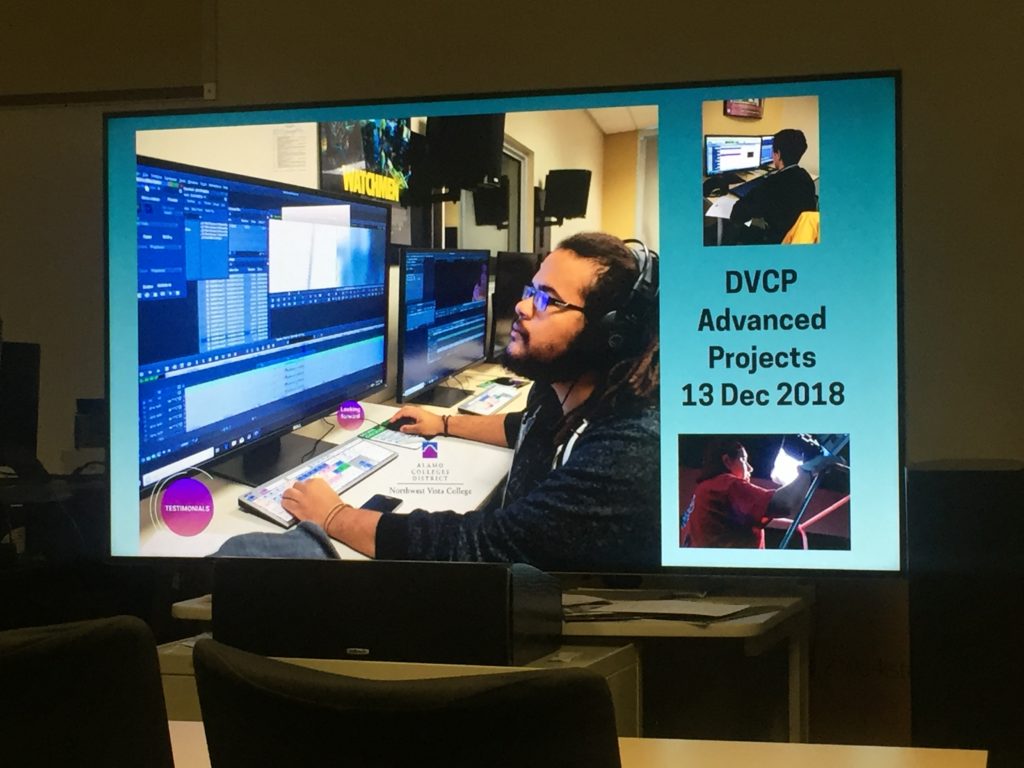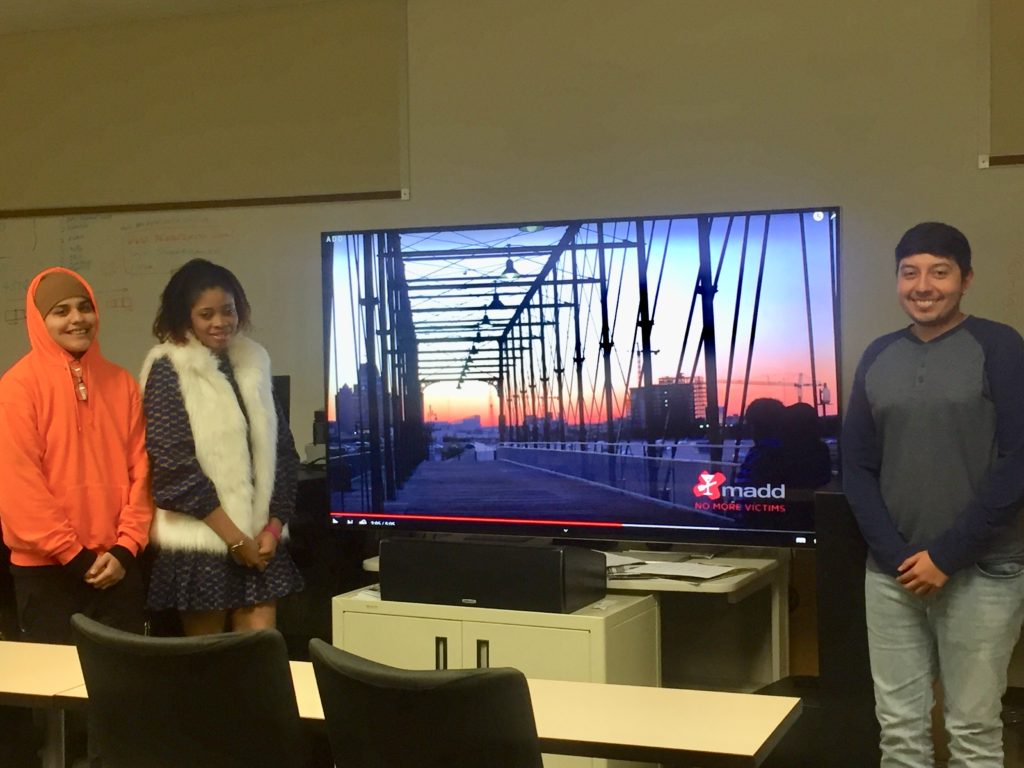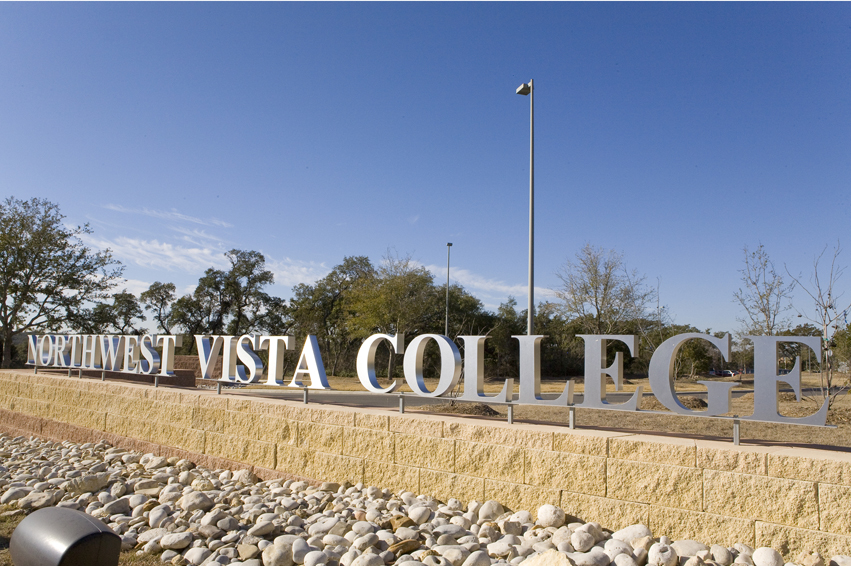 You never know what you are going to find by taking a microbiology class at Northwest Vista. A bit of clarification is needed in a recent science experiment done in campus bathrooms by students.
You never know what you are going to find by taking a microbiology class at Northwest Vista. A bit of clarification is needed in a recent science experiment done in campus bathrooms by students.
Initial test results showed there might be some strains of the bacteria Chlamydia and Staphylococcus in some of the tested areas.
Further discussion with faculty showed it’s unlikely that the organism from the student experiments found on the hand dryer is actually a Chlamydia species. Staphylococcus species are commonly found in restrooms and other areas humans frequent, according to NVC Microbiology faculty Dr. Adam Reeves.
Also the bacteria Chlamydia does not survive well outside the human body and typically is only contracted through sexual intercourse. To learn more, check out the CDC website. While Staph can live outside the human body and is common in many public bathrooms, NVC’s cleaning service uses hospital-grade disinfectants daily in the bathrooms.
Remember to always wash your hands and nails and cover any open wounds, and never walk barefoot in public areas. To learn more about staph infections, go here.
And if you want to know more about the science behind the experiment or have interest in Microbiology for Nursing and Allied Health – 27495 – BIOL 2420 – 007 at NVC, fall registration opens to everyone on April 24. There are plenty more experiments to do on campus! Register here.
NVC’s Dr. Reeves gave some more details about his classes’s experiment:
I will start with the protocol of how we find and identify microorganisms.
- Students are encouraged to swab areas and streak their swabs onto selective media.
- The student then isolate colonies on agar plates to grow for DNA amplification of a 500 nucleotide sequence within the rRNA gene (https://jcm.asm.org/content/45/9/2761).
- The amplified sequence are then sent off for sequencing before the sequences are compared to a database for identification.
We did have a sequence come back that indicated that we could have isolated a Chlamydia strain. Here are the problems:
- Chlamydia species are obligate intracellular parasites, which means they can only be grown in cell lines and our colony grew on an agar plate.
- The rRNA gene sequencing comparison has many limitations, including:
- It has poor discriminatory power for some genera, meaning the results are often incorrect.
- The DNA databases, private and public, are dependent on the “deposition of complete unambiguous nucleotide sequences” and how labels are applied to each sequence. This means that not all databases contain all sequences and the sequences could be labeled incorrectly. (https://jcm.asm.org/content/44/4/1359.long)
- Other issues relate to the researcher’s ability to perform the DNA isolation, extraction, amplification, and purification procedures, which all contribute to the ability to correctly sequence a sample.
As for the “Staph” strains found, micro labs have found isolates in the bathrooms by putting the samples on selective and differential media. This means that we are highly confident that a strain exists on the surfaces in restrooms, but we would have no clue that pathogenicity (ability to cause disease) of the organism.
Reasons to not be concerned:
- Staphylococci are normal microbiota on your skin and mucosal membranes, which can commonly be shed to surfaces.
- A study that shows the common organisms, including Staphylococcaceae species, found on different areas in a public restroom –https://www.ncbi.nlm.nih.gov/pmc/articles/PMC3223236/pdf/pone.0028132.pdf
 I decided to take online classes since I am constantly on the move. You see, my husband and I decided to travel cross country via RV once our youngest daughter got into college. Once we moved her into her dorm, we packed up and put the house up for sale.
I decided to take online classes since I am constantly on the move. You see, my husband and I decided to travel cross country via RV once our youngest daughter got into college. Once we moved her into her dorm, we packed up and put the house up for sale.
 I have been attending college for about two years, and this is my first semester that I am taking courses for my degree. In the beginning of my college career, core classes were very easy to me. I could easily finish assignments and get good grades, which I though would be impossible with me living out of the house and having to work full time.
I have been attending college for about two years, and this is my first semester that I am taking courses for my degree. In the beginning of my college career, core classes were very easy to me. I could easily finish assignments and get good grades, which I though would be impossible with me living out of the house and having to work full time.




 A few months before graduating high school, I was forced to face a tough reality: If I didn’t get at least 80 percent of my college costs covered, I would not be attending a university.
A few months before graduating high school, I was forced to face a tough reality: If I didn’t get at least 80 percent of my college costs covered, I would not be attending a university.
 Spontaneity is the best.
Spontaneity is the best.
 At this point of the year, we are all familiar with the “broke college student” phrase that has been our excuse for mainly everything regarding finances.
At this point of the year, we are all familiar with the “broke college student” phrase that has been our excuse for mainly everything regarding finances.
 As my first semester of college begins to approach it’s finish line, I can’t help but compile all the things I’ve learned throughout these past few months. I’m going to be honest, at first, I hated college. I wanted to go back to my high school homeroom and work on my word puzzle that was occasionally taken for extra credit.
As my first semester of college begins to approach it’s finish line, I can’t help but compile all the things I’ve learned throughout these past few months. I’m going to be honest, at first, I hated college. I wanted to go back to my high school homeroom and work on my word puzzle that was occasionally taken for extra credit.